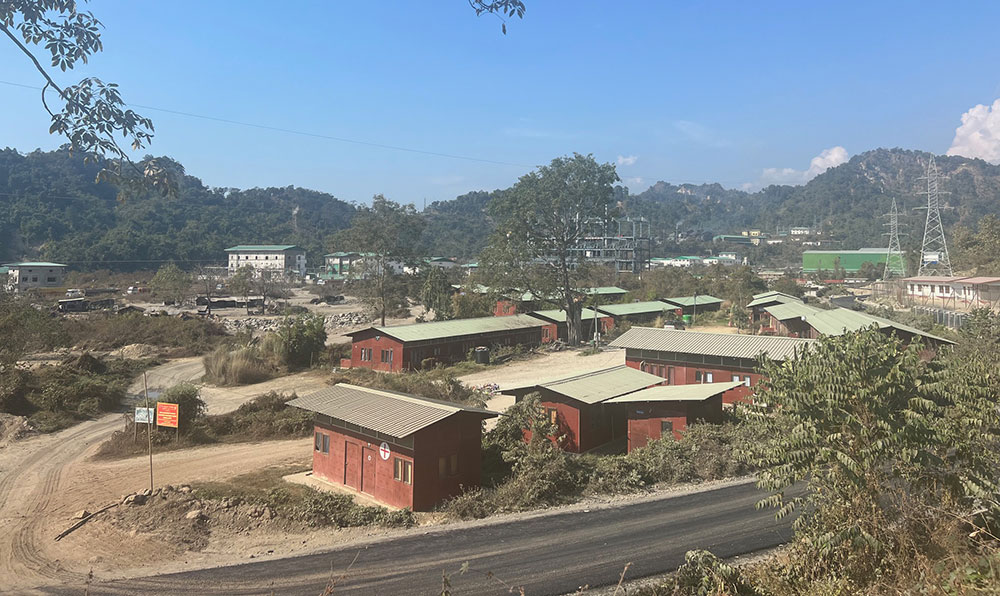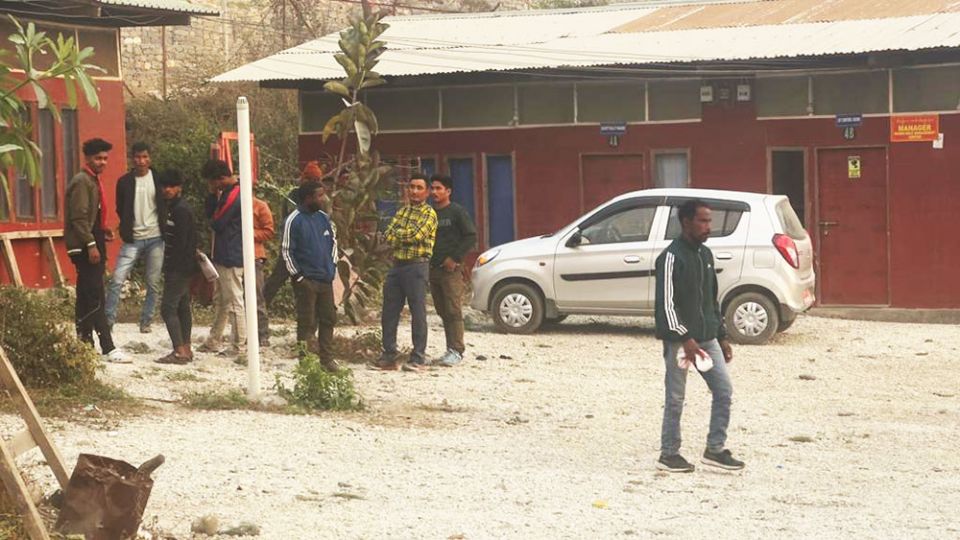
FWRAs demand clarity amid regulatory concerns
MoICE implements strict measures to improve the management of foreign workers
As the recruitment season peaks, concerns have emerged among Foreign Workers Recruitment Agents (FWRAs) on the penalties and license deregistrations, which they say is arising from ambiguities in labour laws and regulations.
These concerns were triggered by the Department of Labour imposing a uniform penalty of Nu 45,000 on all 40 FWRAs operating across various entry points in the country last year. These penalties were levied for non-compliance with the Labour and Employment Act (LEA), 2007, Regulation on Foreign Workers Management (RFWM), 2022, and Regulations on Working Conditions (RWC), 2022.
Some agents faced additional penalties, including Nu 90,000 for violating section 80 (b) of the RFWM, and penalties for failing to initiate a provident fund (PF) scheme for employees and failing to deposit the PF.

Foreign workers are supplied to the employers in various dzongkhags after registration and health screening processes with FWRAs and DSC
The department conducted two rounds of monitoring and assessment in April and October 2023, resulting in penalties for FWRAs’ failure to mobilise and maintain comprehensive lists of eligible foreign workers ready to work in Bhutan. The ministry clarified that FWRAs are not only required to maintain the list of potential foreign workers in the country, but also supply them in response to demand as their primary responsibility.
Of the 40 FWRAs operating across the country, Phuentsholing has the highest concentration with 21 agents, followed by Gelephu with eight, Samtse with seven, and Samdrupjongkhar four. All agents are subjected to stringent monitoring as per the provisions of the RFWM, 2022.
Two agents were deregistered in Phuentsholing for non-compliance, while six agents were issued Certificates of Registration (CoR) for only six months.
Proprietor of KD FWRA, based in Motanga, Samdrupjongkhar, said that the penalties were imposed without issuing any notices for improvement. “Moreover, I have been penalised for the second instance, which doubles the daily national minimum wage of 360 times, amounting to Nu 90,000,” he said.
He also said that the monitoring team demanded “sourcing certified foreign workers from outside the country,” deeming it an extraordinary provision not specified in the RFWM or supported by an improvement notice under clause 40 (b) of the LEA.
Ministry’s clarification
In response to concerns raised by proprietors of KD FWRA and Phagchhog FWRA, Ministry of Industry, Commerce and Employment’s (MoICE) Secretary Tashi Wangmo clarified that penalties were imposed for failure to uphold validated lists of eligible foreign workers, as mandated by the RFWM, 2022. During the monitoring process, the team randomly selected a few contact numbers for cross-examination to verify the validity of the list. It was discovered that there was no response, indicating that the list was prepared “merely for formalities”.
She explained that while Section 40 of the LEA regarding Improvement Notices is not universally applicable for imposing fines, penalties imposed were within the scope of existing legal frameworks. The department clarified that the regulation does not include provisions for issuing Improvement Notices in cases related to foreign workers’ management violations. Instead, Section 92 of the RFWM explicitly outlines the penalties to be imposed for violations.
Secretary Tashi Wangmo also highlighted the ministry’s empowerment to adopt regulations providing licensing procedures and making necessary rules and regulations within the existing law, asserting that the penalty imposed is within its ambit. The undertaking submitted to the ministry during the establishment of the FWRAs explicitly affirms that the agents were well-informed about the RFWM and their roles as FWRAs, acknowledging the specified penalties and sanctions for violations.
Regarding the absence of the term “sourcing of foreign workers” in Section 80(2) of the RFWM, the department clarified that the term “mobilisation” encompasses sourcing activities. If Section 80 (2) and Clause 40 (b) are not clarified or amended, FWRAs claim they would continue to pay fines.
The department reiterated the importance of existing provisions in regulating FWRAs and highlighted the stringent measures in place for non-compliance, including fines and potential deregistration. “As certain agents can effectively operate within the parameters set by the RFWM, the ministry sees no compelling reason to amend these provisions,” the officials stated.
Despite these clarifications, some FWRAs are unconvinced and continues to raise concerns about the clarity and implementation of procedures. “I am not convinced with the clarification provided by the secretary on December 12 last year,” the proprietor of KD FWRA said.
Certificate of Registration issue
In Phuentsholing, some FWRAs challenged the “unfair actions” by the Regional Office, highlighting discrepancies in penalties among those issued certificates of registration. Menjong FWRA’s proprietor was surprised to receive a provisional Certificate of Registration (CoR) of six months in September 2023, despite paying a renewal fee. He said that such a provision does not exist in the act or regulation, and he has not faced challenges since starting the agency in 2009.
The Ministry clarified that the decision was aimed at providing FWRAs with an opportunity to improve their operations. During routine monitoring of the agents by their Regional Office, it was observed that many of them failed to meet the prescribed standards outlined in the RFWM. Consequently, a report recommending the deregistration of these agents was submitted to the department by the Regional Office. As part of the biannual monitoring conducted by the department, the team verified the findings from the submitted report. The matter underwent thorough deliberation in the committee established as per the regulation.
The committee, according to the ministry, ultimately decided to extend the CoR for six months, offering agentsa chance to rectify and improve their operations and management of foreign workers.
Established in 2009, FWRAs have faced scrutiny over their operations. However, despite recommendations from various agencies to discontinue their existence, the Ministry has chosen to regulate and manage them in line with existing legislation. FWRAs were permitted to resume operations in September 2022 following guidance provided under the RFWM.












